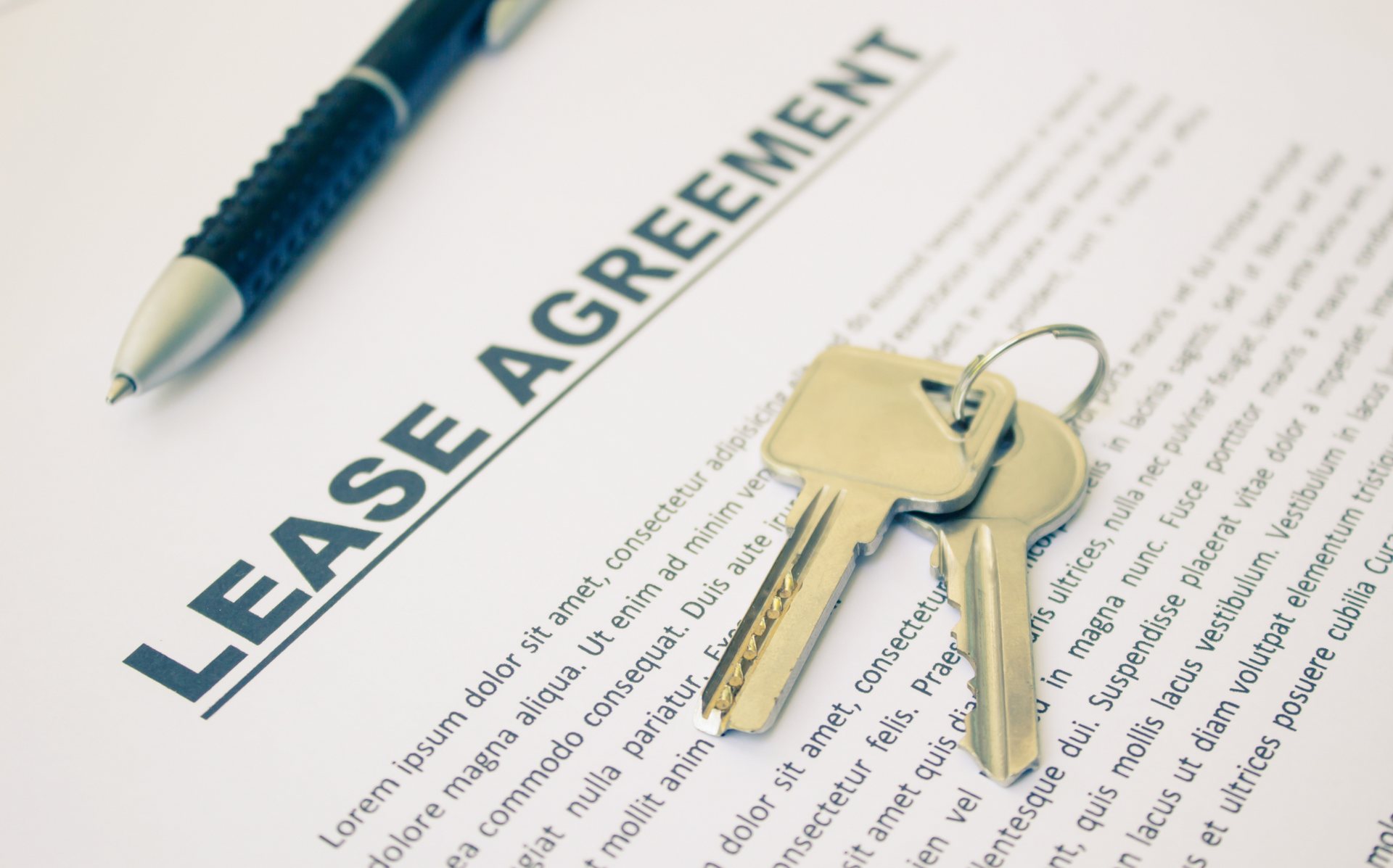BLOG

What is coliving? Learn everything about the coliving concept, including shared living communities, flexible apartments, cost-saving benefits, amenities, and lifestyle advantages. Discover how co-living compares to traditional housing and renting, and why it’s becoming a popular modern living solution.

Planning to live off-campus at USC? Discover the ultimate USC Housing Checklist for Students Signing Their First Lease. From budgeting and deposits to inspections, lease terms, safety, and move-in prep, this complete first lease checklist helps USC students sign with confidence and start their college life stress-free.

Can you live on campus all 4 years at USC? Learn how USC’s housing system works, what the 2-year guarantee means, how the housing lottery affects juniors and seniors, and what alternative options are available. Explore real student experiences, off-campus housing tips, budgeting advice, and how to stay connected to cam

How to Find Affordable Off-Campus Housing Near USC Without Breaking the Bank – Discover practical strategies, budget-friendly neighborhoods, and the best tools to help you secure affordable off-campus student housing near USC. Whether you're a freshman or grad student, learn how to find flexible lease options, save on rent, and choose the right housing type for your lifestyle—all while staying close to campus. Start your smart housing search today.

Before jumping into your roommate search, it’s crucial to decide if living with someone else truly fits your lifestyle. While having a roommate can help you cut costs and build new connections, co-living also comes with compromises. Understanding your own habits, values, and personal preferences will help you determine whether sharing a space is the right decision—or if you'd be better off living solo. Know Your Living Preferences Your lifestyle plays a huge role in whether or not you’ll thrive with a roommate. Start by reflecting on your day-to-day habits and how comfortable you are sharing your space with someone else. If you're someone who enjoys quiet evenings and values solitude, living with a roommate who frequently entertains guests might create friction. Likewise, if you're a night owl, a roommate who rises at dawn could cause accidental disruptions. Consider how clean you like your space, how often you're home, and how social you are. Ask yourself whether you're more introverted or extroverted, and whether you recharge through alone time or connection. Do you mind sharing a kitchen, bathroom, or closet space? Would unexpected noise or mess stress you out? By answering these questions honestly, you’ll get a clearer idea of what kind of roommate situation—if any—would work for you. Pros and Cons of Living With Roommates There are undeniable benefits to having roommates. The most obvious is saving money—splitting rent, utilities, and even groceries can ease financial strain significantly. On top of that, having a roommate can mean shared responsibilities like cleaning and household errands, which can make daily life more manageable. Emotionally, a roommate can provide companionship, especially if you’re new to a city or living far from friends and family. However, it’s not always smooth sailing. Sharing a home also means navigating differences in habits, personalities, and schedules. One person's laid-back attitude toward cleanliness may clash with another’s high standards. Conflicts can arise over noise, visitors, chores, and boundaries. Without clear communication and mutual respect, small annoyances can grow into bigger issues. That's why it’s essential to weigh both the advantages and potential stressors before committing to a shared living arrangement. Set Your Roommate Criteria & Budget Once you’ve decided that having a roommate is the right move for you, the next step is to define exactly what you're looking for in a potential housemate—and what you're able to offer in return. Getting clear on these expectations ahead of time helps you filter out mismatches and attract compatible roommates more efficiently. Think of this stage as setting the foundation for a successful living arrangement. Make a Must-Have List Before you start browsing listings or asking around, take time to make a list of essential traits you want in a roommate. Cleanliness is often a major point of contention in shared living, so it's important to decide how tidy your ideal roommate should be. You may want someone who consistently washes dishes, keeps common areas organized, and respects shared spaces. Responsibility is another key trait—look for someone who is punctual with rent, respectful of boundaries, and communicative when issues arise. Matching schedules can also make or break a living situation. If you work night shifts and your roommate is an early riser, constant disruptions are likely. Aligning your daily rhythms—like work hours, quiet time, and use of shared areas—can go a long way toward maintaining harmony. Also consider your deal breakers. Are you okay with pets, or do you have allergies? Would smoking indoors or loud music at night drive you up the wall? Be honest with yourself about what you can and can’t tolerate. Defining these non-negotiables up front helps prevent bigger conflicts later on. You don’t have to find your clone, but you do need someone whose lifestyle doesn’t clash with yours. Budgeting and Lease Considerations Beyond personality fit, the financial logistics of co-living should be crystal clear before anyone signs a lease. Determine the total cost of living , including rent, utilities, internet, and shared supplies. Break down what each person is responsible for and how payments will be made. Will you split everything down the middle, or does one person pay slightly more for a bigger room? You should also decide who will be listed on the lease—both of you or just one party—and how deposits will be handled. These conversations may feel uncomfortable, but they’re crucial for protecting everyone involved. Having clear financial expectations in place from the beginning will help you avoid misunderstandings and create a more stable living situation. Methods for Finding Roommates When it comes to finding the right roommate, there’s no one-size-fits-all approach. The best method depends on your timeline, preferences, and comfort level. Fortunately, today's roommate search landscape offers more options than ever before—both online and offline. Whether you're reaching out to people you already know or turning to specialized apps, taking a multi-channel approach will increase your chances of finding a good match. Use Your Network First One of the most reliable ways to find a roommate is through your personal network. Friends, family, coworkers, or classmates can be excellent sources for referrals. Not only do these people understand your personality and habits, but any connections they suggest usually come with some level of trust and accountability. Let people know you’re looking by sending out a group text or posting a short announcement. Include details like your move-in date, budget, location, and roommate preferences. You can even print simple flyers and post them on community bulletin boards at coffee shops, gyms, universities, or your workplace. Word of mouth can work wonders—you never know who’s also searching for a place or knows someone who is. Leverage Social Media If your personal network doesn’t yield any promising leads, it’s time to tap into your digital community. Social media platforms offer powerful tools to connect with potential roommates quickly and efficiently. Start by posting on your own profiles—Instagram Stories, Twitter threads, or LinkedIn posts can reach people both within and outside your immediate circle. Be clear and specific about what you’re looking for and include any deal breakers. Facebook is especially useful, with countless local groups dedicated to housing and roommate searches . Search for groups using phrases like “Find roommates in [City]” or “Roommates NYC/Boston/etc.” You’ll often find posts from people actively looking for housing or roommates. To make your post stand out, use a shareable image with key details—tools like Canva make it easy to create a professional-looking graphic in minutes. How to Find a Roommate Online If your network and social reach still come up short, don’t worry—there are several roommate finder apps and websites designed to connect people based on lifestyle, location, and preferences. These platforms are ideal for reaching a broader audience and offer features that help streamline the search process. Roomi is a top choice thanks to its emphasis on safety and user verification. It allows you to browse profiles, check preferences, and message potential roommates without revealing your contact info. This extra layer of privacy makes initial conversations feel safer and more comfortable. Diggz operates much like a dating app—users build a profile and swipe through matches based on mutual interests and living habits. It’s a quick way to narrow down options and make connections with people you might genuinely vibe with. Roomie Match takes a more curated approach. For a small fee, human reviewers help match you with roommates based on detailed questionnaire responses. It’s ideal if you're short on time or overwhelmed by too many choices. Other platforms like Padmapper , Cirtru , and Roommates.com blend apartment hunting with roommate matching. These tools let you filter listings by city, budget, and amenities while also viewing profiles of people seeking shared housing. As with any online platform, be cautious of scams. Avoid sending personal information or money before verifying the other person’s identity. Always arrange to meet in a public place for initial conversations and consider running a background check or asking for references before finalizing any agreements. Being smart and vigilant will help ensure your search leads to a positive and safe roommate experience. Interviewing and Screening Roommates Finding a potential roommate is only half the battle—screening them is where things really count. Sharing a living space means sharing your daily life, so it's essential to ensure you're choosing someone responsible, respectful, and compatible with your lifestyle. A good interview process helps you avoid messy conflicts, missed payments, or worse—safety concerns. Whether you're meeting someone from an app, through a friend, or off a social media post, treat the screening process seriously. This is your chance to learn if you’re genuinely a good match. Key Questions to Ask When meeting a potential roommate, prepare a list of thoughtful questions that reveal their lifestyle , values, and habits. Start with practical things like their work or school schedule —do they work nights, have early morning shifts, or work from home? Aligning your daily rhythms can prevent tension. Then dig into their cleanliness and organization habits . Ask how often they clean and what they expect from a roommate in terms of shared responsibilities. Don’t forget to ask about social behavior . Do they like to entertain? Do they host friends often or prefer quiet nights in? Discussing this early can help you avoid surprises. It’s also smart to inquire about their rent payment history . Have they ever split rent with someone before? Were there any issues? What did they learn from previous roommate experiences? Their responses will tell you a lot about their reliability and openness. Remember, this isn’t just an interview for them—you’re being evaluated too. Be ready to answer these same questions honestly and offer insight into your own expectations and habits. Red Flags and Safety Tips As you're getting to know someone, keep an eye out for warning signs that could signal future issues. Be cautious of anyone who gives vague or inconsistent answers, especially when discussing rent, job stability, or previous roommates. If someone avoids your questions or seems unwilling to share personal information, it may indicate a lack of transparency or accountability. Always arrange to meet in a public place for the first meeting—like a coffee shop or park. Avoid inviting someone to your home before you feel confident in their intentions. Once you’ve had a good conversation, don’t hesitate to ask for references, especially from previous landlords or roommates. If you want added peace of mind, consider running a background check through a reputable site. Taking these precautions might seem like extra work, but they can save you from a stressful and potentially unsafe living arrangement. A little diligence now will go a long way in creating a positive, respectful home environment later. Signing a Roommate Agreement Even if you’ve found someone you get along with and trust, it’s still crucial to protect your living situation with a written roommate agreement. Think of it as a shared contract that outlines expectations, responsibilities, and rules for living together. While it's not a legally binding document like a lease, it’s incredibly useful in preventing misunderstandings and resolving conflicts before they escalate. A roommate agreement creates a shared reference point you can return to if things ever get unclear, awkward, or tense. It’s about accountability, transparency, and making sure you’re both on the same page. What to Include A solid roommate agreement should cover all the important aspects of co-living . Start with the division of rent and utilities —state how much each person pays, when it’s due, and how it’s paid. Include shared expenses like internet, water, and even household supplies. Next, outline household responsibilities , such as who cleans what and when, whether chores rotate, and how you'll handle groceries and common area upkeep. Guest policies are another area where miscommunication can occur. Agree on how often guests can visit, overnight stay limits, and quiet hours to respect each other’s need for rest and privacy. Include rules about noise levels , especially if you have different work or sleep schedules. One often-overlooked but essential part of any roommate agreement is what happens if one person decides to move out early . Will they be responsible for finding a replacement? Will the remaining roommate cover the rent temporarily? Clarifying these scenarios in advance avoids panic and resentment later. Apps for Chores & Bills Keeping up with bills and chores becomes much easier with the help of a few smart tools. Splitwise is a go-to app that helps roommates track shared expenses and settle balances without confusion. Each person can log what they’ve paid, and the app calculates who owes what. For payments, apps like Venmo make it simple to transfer money instantly, ensuring you’re not chasing down cash every month. For organizing household tasks, OurHome is a great option. It lets you assign chores, set reminders, and even track completion, making it easier to stay accountable without awkward nagging. These apps help foster a sense of fairness and structure in the home, allowing both roommates to focus more on enjoying their space and less on arguing about the trash or missed payments. Finding the Best Shared Apartments Choosing the right apartment is just as important as finding the right roommate. After all, your physical space plays a huge role in your quality of life. The best shared apartments aren’t just affordable—they’re laid out in a way that respects everyone’s privacy, meet your commuting or lifestyle needs, and offer amenities that make shared living easier. Whether you’re moving into an existing shared space or apartment hunting with a potential roommate, knowing what to look for can save you time, money, and future stress. What Makes a Shared Apartment “The Best” Not all apartments are designed with co-living in mind. The best shared apartments typically feature multiple bedrooms of similar size , two bathrooms if possible , and clear separation between common areas and private spaces. A spacious living room and kitchen are also major pluses since these will be high-traffic areas. If you're splitting rent equally, having rooms of equal value avoids resentment or awkward negotiations. Look for units in buildings that offer in-unit laundry , dishwashers , or individual climate control —small conveniences that make daily life smoother when multiple people are sharing a home. Apartments with built-in desks or study/work areas can be helpful if one or both roommates work from home. How to Find a Place With Roommates If you're finding a place with roommates , start your search together to ensure the apartment works for everyone. Use filters on apartment search platforms to select multi-bedroom units in your price range. Websites like Padmapper , Zillow , Apartments.com , and Roomi offer options for shared housing, where rooms in larger apartments are rented individually or to small groups. If you’re joining an existing shared apartment, ask current tenants about house rules, utilities, and how they typically manage shared expenses and chores. Make sure to tour the unit in person, and pay close attention to how space is used. A well-organized, clean, and respectful shared apartment usually reflects the kind of living dynamic you can expect. Lease & Landlord Considerations Once you’ve found the right shared apartment, clarify the lease details. Are all roommates signing the lease together, or is one person subletting to others? Ask the landlord about responsibilities for damage , how rent is collected , and what happens if a roommate leaves early . Ideally, you should all be on the lease—or, if not, have a written sublease agreement in place to protect everyone involved. Finding the best shared apartment is about more than just square footage or rent—it’s about finding a space that supports shared living, balances privacy and community, and fits your lifestyle. Conclusion: Make Co-Living Work for You Finding a roommate and the perfect shared apartment may feel overwhelming at first—but with a clear plan, the right tools, and a bit of patience, it can be one of the smartest moves you make. Whether you're aiming to reduce rent, share daily responsibilities, or simply avoid the loneliness of living alone, co-living can be a rewarding experience. The key is preparation. Know what kind of roommate you're looking for, define your budget, and set firm expectations from the beginning. Use your personal network, social media, and modern roommate finder apps to cast a wide but targeted net. When you start getting leads, take time to interview and screen candidates thoroughly. Don’t shy away from tough conversations early—they help avoid tougher ones later. Once you’ve found a good match, lock in the arrangement with a roommate agreement and choose an apartment that fits your shared needs. Today’s co-living world is full of options, and it’s easier than ever to find roommates online, get a roommate safely, and secure a shared apartment that checks all your boxes. Whether you're in a bustling city or a college town, the right combination of compatibility, communication, and comfort can turn your apartment into more than just a place to sleep—it becomes a place to thrive. So don’t rush the process. Ask the right questions, trust your instincts, and use every tool available to you. With a bit of effort and smart decision-making, you can find a roommate who fits your lifestyle and a home that truly feels like yours. Frequently Asked Questions How do I find a roommate online safely? To find a roommate online safely, start with trusted platforms like Roomi, Diggz, Roomie Match, or Roommates.com. These apps often include user verification and allow for private messaging before meeting in person. Always screen potential roommates through video calls or phone interviews, and meet in public the first time. Never share financial information or sign a lease with someone you haven't met. For extra security, request references or run a background check if something feels off. Safety first—it's better to be thorough than to rush. What are the best apps to find roommates in the USA? Some of the most recommended apps and websites to find roommates in the U.S. include: Roomi – Known for safety features and background-verified users. Diggz – A swipe-based interface that matches users like a dating app. Roomie Match – Offers human-reviewed matches for a small fee. Padmapper and Cirtru – Blend apartment listings with roommate searches. Each platform has unique strengths, so choose one that fits your location and preferences. How long does it take to find a good roommate? It can take anywhere from a few days to a couple of months to find the right roommate. If you cast a wide net—using apps, social media, and word of mouth—you can speed up the process. But don’t rush. It’s better to wait and find someone reliable than to deal with issues later. Should I live with a friend or a stranger? Both have pros and cons. Living with a friend can be fun and familiar, but it can also strain your relationship if boundaries aren’t clear. A stranger offers a clean slate and sometimes more neutrality. Either way, clear communication and written agreements are essential. Is it okay to live with roommates after 30? Absolutely. More adults over 30 are choosing co-living for financial, social, or lifestyle reasons. Whether you're saving for a house or just enjoy having someone around, there’s no age limit on sharing a home. The key is finding someone with a similar mindset and lifestyle. How do roommate agreements work? A roommate agreement is a written document outlining rent, bills, chores, guest policies, and move-out terms. It’s not legally binding like a lease, but it’s a powerful tool to keep everyone accountable. It helps prevent misunderstandings and offers a go-to reference if disagreements arise.







